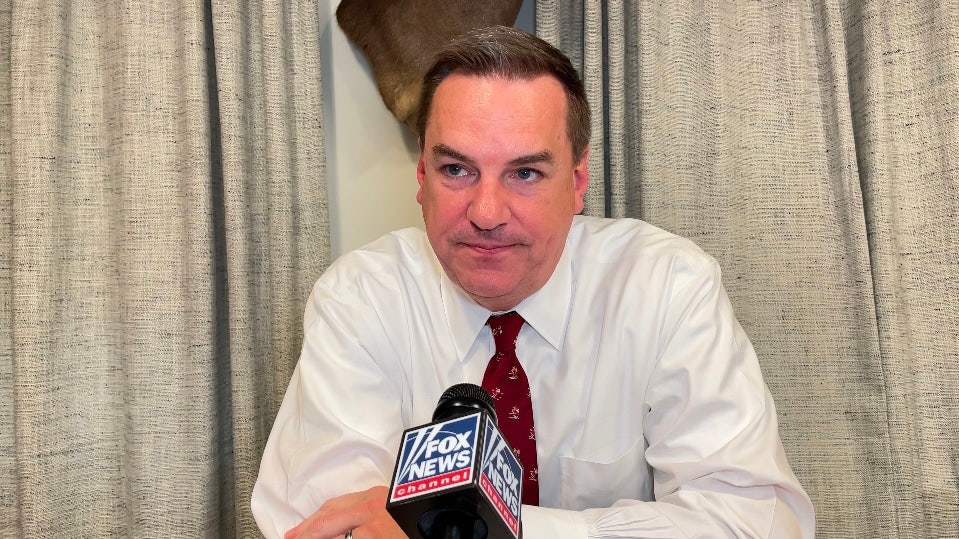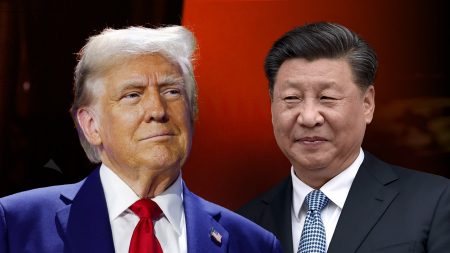Paragraph 1: A Favorable Battlefield for Republicans in 2026 Midterms
Rep. Richard Hudson, chair of the National Republican Congressional Committee (NRCC), expresses optimism about the Republican Party’s prospects in the 2026 midterm elections. He points to the significant overlap between districts won by President-elect Trump in 2024 and those currently held by Democratic House members. Specifically, 14 Democratic representatives occupy seats in districts also carried by Trump, while only three Republicans hold seats won by Vice President Harris. This stark contrast, Hudson argues, places the GOP on the offensive, providing ample opportunities to target vulnerable Democrats and expand their slim House majority. Trump’s decisive victory, including winning both the popular vote and key battleground states, further strengthens the Republican position, providing momentum heading into the midterm cycle.
Paragraph 2: Learning from the Past, Capitalizing on Present Opportunities
Reflecting on the 2018 midterm elections, when Democrats successfully flipped the House, Hudson highlights a key difference in the upcoming cycle. In 2018, Democrats targeted numerous Republican incumbents in districts that had voted against Trump in 2016. This time, the situation is reversed, with a significantly larger number of Democratic seats located in Trump-won districts. This shift in the political landscape creates a more favorable environment for Republican challengers, allowing them to campaign on more familiar turf and potentially capitalize on residual Trump support. Hudson emphasizes that this presents a greater opportunity for Republicans to go on the offensive and reclaim lost ground.
Paragraph 3: Battle-Tested Incumbents and Candidate Quality
Hudson expresses confidence in the resilience and experience of Republican incumbents who may face tough challenges in 2026. He describes these representatives as "battle-tested," having withstood previous election cycles with significant spending against them. Their ability to survive these challenges, he argues, demonstrates their strong connection with their constituents, their effective brand-building, and their track record of delivering results for their communities. Hudson considers these incumbents to be the party’s strongest candidates, well-equipped to navigate the upcoming election cycle. He emphasizes the importance of candidate quality as a crucial factor in Republican success.
Paragraph 4: Navigating the Absence of Trump on the 2026 Ballot
While acknowledging the undeniable impact of Trump’s presence on voter turnout, particularly among less frequent voters, Hudson recognizes the challenge posed by his absence from the 2026 ballot. Trump’s ability to mobilize voters who might not otherwise participate in midterm elections will be missed. However, Hudson believes that by focusing on delivering on the promises made during the 2024 campaign and by leveraging Trump’s continued support through campaign appearances with Republican candidates, the party can maintain high voter engagement and mitigate the impact of his absence. He anticipates Trump will remain a valuable ally, recognizing the importance of a Republican House majority for advancing his agenda.
Paragraph 5: Trump’s Continued Engagement and the Republican Agenda
Hudson underscores the close partnership between Trump and House Republicans, emphasizing the former president’s understanding of the crucial role a Republican House majority plays in advancing his policy goals. He expects Trump’s active engagement to continue into the 2026 cycle, recognizing that a Democrat-controlled House could obstruct his agenda. This continued engagement, Hudson believes, will be instrumental in mobilizing voters and supporting Republican candidates. He highlights Trump’s commitment to maintaining a Republican House majority as a key factor in his continued involvement in the upcoming midterm elections.
Paragraph 6: Prioritizing Candidate Recruitment and Fundraising
Hudson outlines his immediate priorities as NRCC chair: candidate recruitment and fundraising. Recognizing the critical importance of strong candidates, he plans to focus on identifying and recruiting high-quality individuals to run for office. Simultaneously, he emphasizes the need for robust fundraising efforts to support these candidates and provide them with the resources necessary to compete effectively. Hudson anticipates extensive travel to support incumbents and assist with recruitment efforts. He acknowledges the significance of both these aspects in building a successful campaign for the 2026 midterms.










